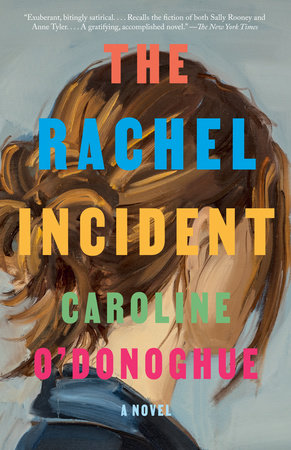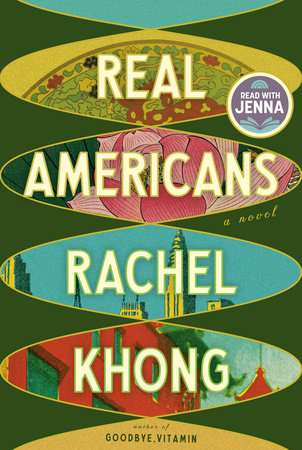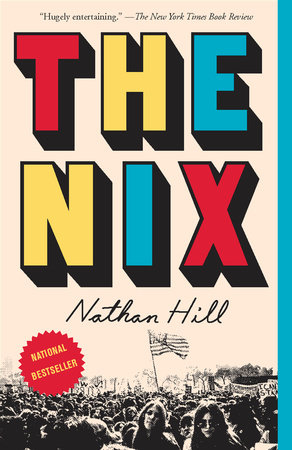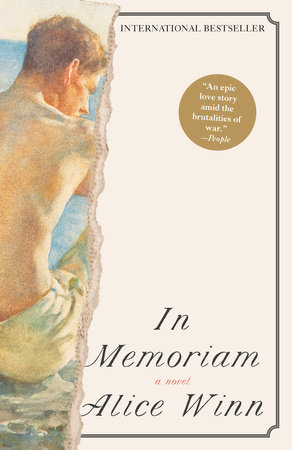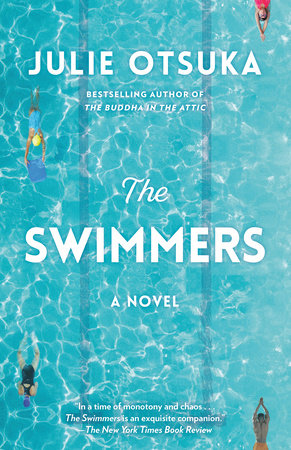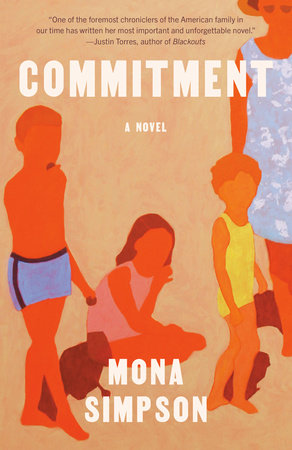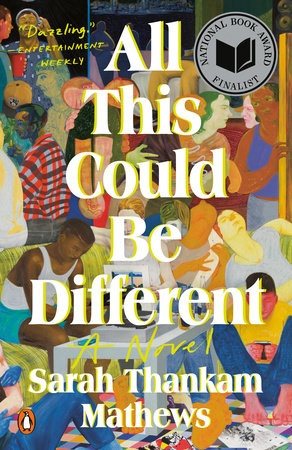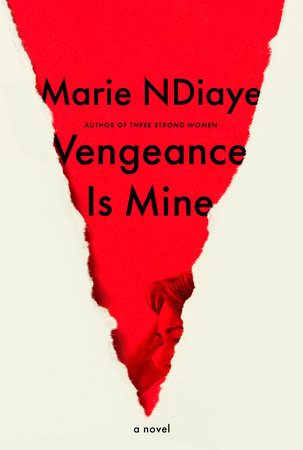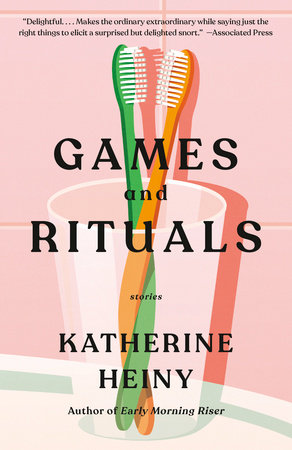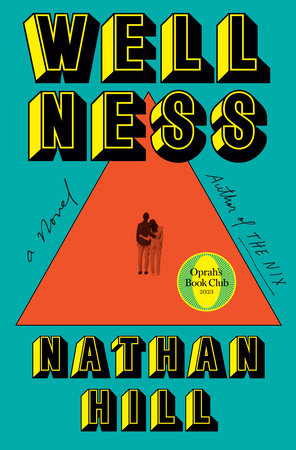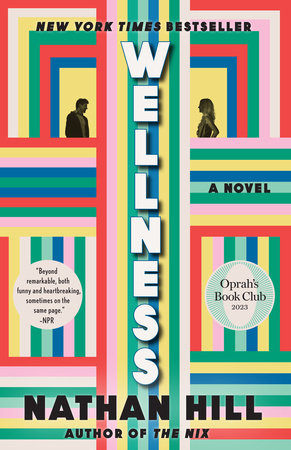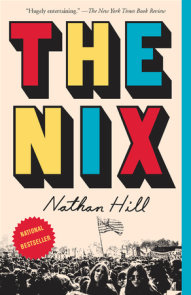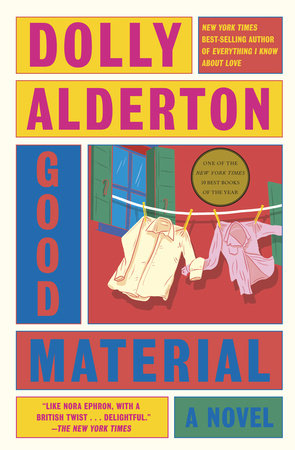Author Q&A
Was there a particular event or idea that was the genesis of Wellness?
I have this group of good friends I travel with every summer, a bunch of writers and poets and teachers, and every year we all rent a house close to the ocean and spend a week at the beach. We’ve been doing this every summer for many years, and in 2014 we were in Cape Cod for the week, and at some point during the visit it struck me that our conversations had, somewhere along the way, changed. Whereas in our twenties we talked mostly about books, now in our thirties we talked mostly about health. It was weird, how suddenly everyone had new and strong opinions about various exercise routines or diet plans. One person was intermittent fasting. Someone else was on a cleanse. Someone had taken up hot yoga. Someone was doing interval training at varying intensities. Someone was now making pasta out of zucchini instead of flour (reason: fewer carbs). Someone else was removing the chewy centers of bagels (also carbs). Someone was now making mashed cauliflower instead of mashed potatoes (ditto, carbs). Someone insisted that a certain protein powder was more natural and therefore better than all other protein powders. Everyone was now oddly familiar with terms I’d never heard them mention in previous summers: macronutrient and ancient grain and cold-pressed. It was like, independent of one another, out of nowhere, we’d all developed exactly the same fetishes.
It actually made me angry, eventually, that our new gravitational center seemed to be this, the health and optimization of our bodies. In our twenties, we talked about the best books. In our thirties, we talked about the best life hacks. I did not like it.
And then at the end of the week, my wife and I were riding the ferry from Provincetown to Boston, and everyone aboard the ferry was riveted by a CNN story on the TVs above us: an American doctor had caught the Ebola virus in Liberia and would now be treated in Atlanta. Everyone was watching as this doctor was sped, via ambulance, to a waiting hospital, and the passengers around us all agreed that this was a huge mistake. We should not have let this doctor back into the country. He was too big of a risk to the rest of us, they all said. Sorry, but you gotta look out for number one. I found this appalling, but also interesting, especially after my week discussing life hacks, this strange cultural imperative: to obsess about one’s own wellness so much that it actually feels correct to ignore the wellness of others. It was like a surge in self-care had coincided with a retreat in empathy. An increase in individual responsibility had met a decrease in collective responsibility. And maybe that explained our newfound interest in diet and exercise: if you don’t think anyone else is going to take care of you, I suppose you have to do the job yourself. Maybe it was all just a very rational response to widespread mistrust and systemic failure. I started writing a story exploring this tension, which, many years later, and after many twists and turns, became Wellness.
The novel begins in the underground art scene in Chicago in the nineties. What about that time and place interested you?
I have such romantic and nostalgic feelings about that period. I was a college kid then, in love with all the music coming out of Chicago: Liz Phair and the Smashing Pumpkins and Urge Overkill and Veruca Salt and so on. I was going to school in Iowa, and I would sometimes travel with friends to Chicago—our closest big city—and we’d visit the bars and bookstores of Wicker Park and pretend to belong there.
I was aware even then of a certain troubling paradox: that the Wicker Park scene was self-consciously indie, that it despised and resented mainstream or commercial attention. It was a screw-the-man kind of attitude, a don’t-be-a-sheep type of vibe that was extremely attractive to the disaffected Gen X twenty-year-old that I was at the time. I wanted to be a screw-the-man person too! But I also understood that the only reason I was even aware of Wicker Park was because I was exactly the kind of mainstream music fan that the neighborhood aficionados deeply disdained. It was the kind of situation that presents certain challenges to your identity: you pretend to be someone you’re not, to fit into a place that doesn’t exactly want you.
I found that paradox useful for the two main characters of Wellness, who have left home to reinvent themselves in Chicago, trying to fit into a new neighborhood and a new relationship and a whole new self. They’re trying to fit themselves into the story they tell about themselves, which is exactly what I was doing in my twenties, and something I think most people do throughout their lives, to a greater or lesser extent: who we say we are, and who we think we are, and who we actually are—these things are never exactly, perfectly aligned.
Can you talk a little about Jack’s specific art and photography?
Many years ago I saw an exhibit at the Art Institute of Chicago on “cameraless photography” that I found really beautiful and interesting. It featured artists using the processes of photographic production to create art that was at the intersection of photography and printmaking and painting and plain old chemistry. My favorite pieces were called “chemigrams,” for which the artist exposed photographic paper to various reagents—chemical developers and fixers and assorted resists like wax or honey or basically anything else you can think of—to create these evocative and striking abstract images that stretched the limits of what could fairly be called a “photograph.”
And I guess it was pretty memorable because, years later, when I was writing the character of Jack, I decided that this was exactly the kind of art he should make. But of course in order to describe it accurately, I needed to actually do it. So I bought several boxes of old and expired photo paper, built a whole darkroom setup in my garage, and made hundreds of my own chemigrams. It actually became a little hobby of mine during the pandemic. I came to really enjoy the process—putting a sheet of brilliantly white photo paper into a tray, filling the tray with water, then adding drops of chemical developer that diffused into the bath and darkened the paper wherever they touched, the shade growing ever darker the longer the reaction persisted—it was all quite beautiful to watch. It was a kind of painting done with chemistry and time. Eventually I decided that examples of Jack’s art should appear in the book. So there are a few chemigrams in Wellness, which were actually done by me, in my garage.
Wellness takes on our constant obsession with the next new thing that will cure our bodies, minds, and spirits and does so with so much humor and compassion. Are we just sort of hopeless in our quest for happiness? Or maybe just human?
The question of how to live a happy life is an old one indeed. Socrates was among the first to take it up. When I google “Socrates” and “happiness,” the quote that appears is this one: “The secret of happiness, you see, is not found in seeking more, but in developing the capacity to enjoy less.” Which is a sound argument but can get all screwed up when it’s manhandled by modern managers in the corporate world (or, let’s face it, also the academic world, and also the nonprofit world), who are like, We won’t give you benefits or a good wage, but have you tried meditation and yoga?
The peculiar twenty-first-century twist on this question of achieving happiness is that we’ve never before been exposed to so many things meant to make us unhappy. It feels like every listicle that comes across the transom reminds me that I am, essentially, doing it all wrong. Even the easiest things: my diet, my sleep routine, how much I’m sitting, the time of day I exercise, the kinds of exercise I do, the number of steps I take, the unhealthy food I’m eating, the unhealthy air I’m breathing, the chemicals I’m accidentally ingesting (the current freak-out seems to involve gas stoves), and so on and so forth. You’re made to feel that happiness and well-being are achievable if you can correct the ways you’re living wrong, but boy oh boy are you ever living wrong! Especially if you’re a parent. My goodness, our current infodemic is just brutal on parents, who are reminded constantly not only how they’re living wrong but also how they might be screwing up their children forever. It’s terrifying, which is exactly what keeps us all clicking. I’m convinced that the entire internet economy is basically a machine that turns terror into money.
So we’re certain that we’re under threat, but less certain about what to do about it. The solutions we’re given so often reveal themselves to be misguided, and sometimes utter bullshit. For example, take that Socrates passage I just quoted. As far as I can tell, Socrates never actually said that. As far as I can tell, that’s a quote from a character named Socrates in a modern self-help book, not Plato’s Socrates. But that Socrates quote is plastered carelessly all over the internet and in hundreds of books with titles like Minimalist Life and Happy Sexy Millionaire and Be More Keanu and Corporate Executive Exit Strategies (not even kidding). My point is that we’re hyper-aware of threats, but the solutions are a little more murky. It’s impossible to know who or what to trust. And in that context, is it wrong to try to exert a little authority, a little control, a little sovereignty? Is it wrong to just go ahead and, screw it, try that juice cleanse?
Wellness spans many decades and lands at the dawning age of digital connectivity, peering into such rabbit holes as social media and your Fitbit. You seem to capture this moment when tech and our obsession with perfection collide and unleash all sorts of mayhem. What about that junction is so electric?
Back in the nineties, I was totally one of those techno-optimists, one of those internet utopianists. All information should be free! No gatekeepers! No barriers! I bought into the whole information superhighway shebang. My first job out of college was as a beat reporter for a newspaper, and the editor of the newspaper wrote a column about me because I was the first person in the entire company to have a cell phone but no landline. That was still unheard of. It made me feel cool and cutting-edge. I was an early adopter. My biggest passion at the time was hypermedia—stories told on computers, novels held together by hypertext links rather than pages. The traditional novel is dead, I wrote in many essays for various lit crit courses, quoting postmodern thinkers who agreed with me, getting enthusiastic As from my professors.
Imagine my surprise, then, to be so wrong about basically all of it. It turned out that when information had no gatekeepers, when people had access to all information and could make up their own minds about everything, they believed some pretty bizarre shit. It turned out that when you took all the barriers down, people became more divided than ever. And hypertext novels did not, in fact, replace traditional novels. That was a pretty tidy example of academic theory outrunning empirical reality.
In the nineties, we thought technology would be some kind of cure. We looked at the newfangled things digital tools were capable of and we gave those things meaning, which was perhaps part of the problem. Because it turns out that what technology can specifically do is not always meaningful. A Fitbit can measure how many steps you take in a day, but is that meaningful? Is that important? I know folks who now swing their arms around while otherwise standing still because the Fitbit interprets that as a “step” and they think that’s exercising. I know people who feel really bad about themselves when they don’t get enough likes on a social media post. But a “like” or a “step” is not itself meaningful; it’s just measurable. Technology is good at measuring things, but we make a mistake when we infuse those things with meaning. What can be measured is not always meaningful, and vice versa.
At the center of Wellness are Jack and Elizabeth, a couple we come to know backward and forward in time who it seems at times may not really know each other at all. Can you talk about how their story unfolds in the novel?
I wanted to tell a love story that was a little bit different. I wanted to tell a story about a couple, but this story would have three main characters: a husband, a wife, and time. It’s a story about the fundamental challenge of marriage: that the spouse who said “I do” is not exactly the same person five, ten, twenty years later. And you are not the same person. And the world is not the same world. Everything changes, and yet at most weddings, couples still make this insane promise: that amid life’s inevitable churn, their love will never change. Which causes all sorts of trouble down the road.
Have you ever heard the story of the Ship of Theseus? It’s an old thought experiment, first described by Plutarch. The story goes like this: The hero Theseus returns victoriously to Athens, and every year thereafter the Athenians commemorate his victory by taking his famous ship for a sail. But of course, over time, the ship needs minor repairs, first replacing this plank, then that plank, then this mast, then that oar, and after centuries of this, eventually not a single piece of the original ship remains. Which begs the question: Is this still the Ship of Theseus? Is it the same ship, even though literally everything that made the ship has been replaced? And it struck me that people are sometimes like that too, and so are marriages, and neighborhoods, and maybe even countries: their changes feel minor individually, but massive collectively. The big question that Wellness often asks is: How much can something change before it’s no longer fundamentally itself?
In order to dramatize this, I used a structure that was flexible with time and chronology. The story is told nonlinearly, and years can pass between chapters. We bop back and forth in time, seeing our couple during their romantic courtship in one chapter, then during their midlife lull in the next, then we see them as children in the next, and so on. I wanted to give the reader the experience that one has in marriage: that you get to know your spouse both forward and backward at the same time. You get to know them forward as you live with them and observe their habits and various tics and eccentricities. And you get to know them backward as you meet old friends, hear old stories, see where they grew up, learn the secrets of their past.
And in so doing, you can achieve a kind of synthesis: This is who my spouse is. And as soon as you believe that, they slip away from you again.
Throughout the book it seems we often come to a moment when your characters are confronted with the question of what is actually true—about their own lives and history as well as the larger world. Is that an accurate assessment?
Absolutely. It struck me while writing this book that certain anxieties we’re having in America right now seem to be anxieties about figuring out what’s real and what’s not: Is this food I’m eating real food? Is this news I’m reading fake news? Has this picture been photoshopped? Am I being my true, authentic self, or have I just been socialized to behave this way? Are my thoughts and opinions genuinely mine, or have they been corrupted by propaganda or algorithms or growing up with a particular identity in an unjust place? What secret unacknowledged biases might I harbor? Which massive conspiracies might actually be happening? It’s a post-truth world, where much of observed reality is treated like it’s just a semiopaque scrim hiding what is really going on. It’s a tough place to be, mentally, emotionally.
So the plot in Wellness often hinges on problems of obscurity and clarity, problems of delusion and truth. One of the big challenges the central couple faces is just seeing themselves—and each other—accurately. But this problem, this tension about reality, also hovers in the background, in various playful ways. In just about every chapter, there’s some small problem figuring out what’s real. In one scene, there’s a Chicago skyscraper with a mirrored facade that reflects the sky so perfectly that birds can’t tell the difference between building and sky, and thus they keep banging into the windows. In another scene, a Kidz Bop song is playing in the background, and a character is trying to tell the difference between this family-friendly cover and the original authentic song. Stuff like that, minor challenges to objective reality.
We have to talk about the love potion! If there was a magic potion for love, do you think people would take it? If we could create a love potion, would it be ethical to use?
During my research for Wellness, I came across an essay with the deeply sexy title “Could Intranasal Oxytocin Be Used to Enhance Relationships?” It was written by researchers at the Oxford Centre for Neuroethics, and they argued that because evolution had not exactly hardwired humans for long-lasting, resilient, sexually exclusive monogamous relationships, many people in long marriages often find an unbearable tension between the expectations of marriage and their own underlying psychobiology. And perhaps the solution to this tension could be regular shots of oxytocin—nature’s love hormone—straight up the nasal cavity and into the brain. Voilà! A love potion. One that doesn’t change anything about the marriage itself, but rather changes how the brain perceives the marriage.
Would people take this? I am sure people would take this. I know people who are only staying in their marriage for the sake of their kids, and I am certain that a little inhaler of chemical relief would be a very welcome addition to their nightstand. But is it ethical? As the Oxford researchers pointed out, there are worrying side effects: oxytocin makes you feel more trusting, but of course some spouses aren’t trustworthy; it could also be used coercively, with one partner cajoling the other into remaining in a marriage against their wishes. But I’m mostly worried about medicalizing love, about treating relationship problems pharmacologically. It seems too reductive, and I’m worried the drug would replace real behavioral change. Because here’s the thing: We already have a love potion. We already know how to get that shot of oxytocin. When you, for example, get all dressed up for a date at a restaurant that you and your partner adore, your brain hits you with a little bit of love potion. When you give each other a hug when you happen to cross paths at home, when you cuddle on the couch, when you cook a nice meal for your partner, when your partner thanks you for cooking the meal, when you talk about your day and your partner is interested, when you go do something together that you’ve never done before, when you get or give a massage, when you engage in long, luxurious foreplay—all of that hits us right there in the pituitary. It’s no guarantee of long-lasting wedded bliss, of course, and every relationship is different. But it’s a good place to start, a good basic rule of thumb, that the most effective love potion is just paying attention, taking the time, and giving a shit.



